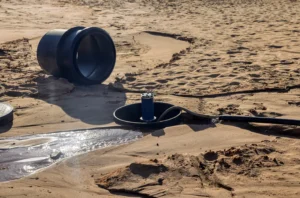
Gravity septic systems offer a time-tested solution that works with nature (not against it) to keep your property running smoothly. Whether you’re building new, replacing an old system, or just need routine maintenance, Puget Sound Septic brings the expertise and local knowledge to get the job done right.
We’ve seen how the right septic system can protect your property value. And we know that for many local properties, a well-designed gravity system offers the perfect balance of simplicity, reliability, and cost-effectiveness.
No matter what type of septic system your property has, there’s one universal truth: regular inspections are the key to keeping it running smoothly. And whether you’re dealing with a septic emergency or just need a routine pump-out, we’ve got you covered.
Is a gravity system right for your property?
Not sure if gravity septic is your best option? Start by considering your property’s features. Do you have a natural slope away from your home? Is your soil well-draining but not too sandy or rocky? Do you have enough space for a properly sized drainfield? A gravity system could be perfect for your needs if you answered yes to these questions.
These systems work especially well in the varied terrain of King County WA, where many properties have the natural slope needed for proper drainage. Budget-conscious homeowners often find gravity systems appealing because of their lower long-term costs. And if you value simplicity and reliability over high-tech features, gravity’s proven track record speaks for itself.
Septic Inspections With Puget Sound Septic
When it comes to your septic system, you need a partner who understands the unique challenges of King County WA properties. Our team has decades of experience designing, installing, and maintaining gravity septic systems throughout the region.
We start every project with a thorough site evaluation, checking soil conditions, measuring slopes, and making sure your property meets all local requirements. Our design process considers your household’s specific needs while maximizing your system’s efficiency and longevity.
If you’re experiencing problems with your existing system, we provide honest assessments and practical solutions. Sometimes a simple repair can add years to your system’s life. Other times, we might recommend upgrades or modifications to prevent future issues.
We’ll explain your options clearly and help you make the best decision for your property and budget.
Choose Us for Your Septic Pumping Needs
Fill out our form and we'll be in touch!
Fill out our form and we'll be in touch!
*During normal business hours. After hours calls will be returned the next business day.
How a Septic Tank Gravity System Works
Think of your gravity septic system as nature’s own recycling center.
- Your wastewater first flows into the septic tank through in inlet baffle.
- Heavy solids sink to the bottom, forming sludge, while lighter materials (oil and grease) float to the top as scum.
- The relatively clear water in the middle (called effluent) is what moves on to the next stage.
- Here’s where gravity comes in. Without any pumps or electricity, this effluent flows naturally from your septic tank through the outlet baffle to the drainfield.
- As it moves through perforated pipes buried in gravel-filled trenches, the effluent slowly seeps into the surrounding soil. The soil acts like a giant filter, removing harmful bacteria and breaking down nutrients before the cleaned water rejoins the groundwater below.
Benefits and Trade-Offs of Gravity Septic
- With no pumps to fail during power outages and no complex controls to malfunction, gravity systems just keep working.
- They’re also gentler to your wallet over time, with lower energy costs and fewer replacement parts.
- Many homeowners appreciate the environmental benefits, too. These systems use zero electricity for daily operation.
However, gravity systems aren’t perfect for every situation:
- If your property is flat or has poor draining soil, gravity alone might not be enough.
- You’ll need adequate space for the drainfield, and the system must be placed downhill from your home.
- Some properties simply don’t have the right topography or soil conditions to make gravity work effectively.
The key is working with experienced professionals who can assess whether your property is a good match for this type of system.
Gravity Septic Maintenance
Gravity systems are actually easier to maintain than most other septic options. But ‘easier’ doesn’t mean ‘maintenance-free.’ Your gravity system still needs regular pumping, typically every three to five years, depending on household size and usage. Between pumpings, you can help your system by being mindful of what goes down the drain.
Avoid flushing anything besides human waste and toilet paper, and steer clear of harsh chemicals that can kill the beneficial bacteria in your tank. Also, watch for warning signs like slow drains, gurgling sounds, or wet spots near your drainfield. These symptoms often indicate problems that are easier and less expensive to fix when caught early. Annual inspections can catch small issues before they become big headaches.
Unlike systems with pumps and alarms, you won’t wake up to mechanical failures or electrical problems. Your gravity system works quietly in the background, day after day.
Your King County WA Septic Experts
At Puget Sound Septic, we’re your neighbors who understand the unique needs of King County WA properties. We specialize in inspections, repairs, maintenance, and installations of gravity septic systems. So whether you want a new septic system, need a repair, or would like a preventative inspection or maintenance, we’re here to help.
Just reach out to us today and get started with an inspection!
Back to Septic System Inspection